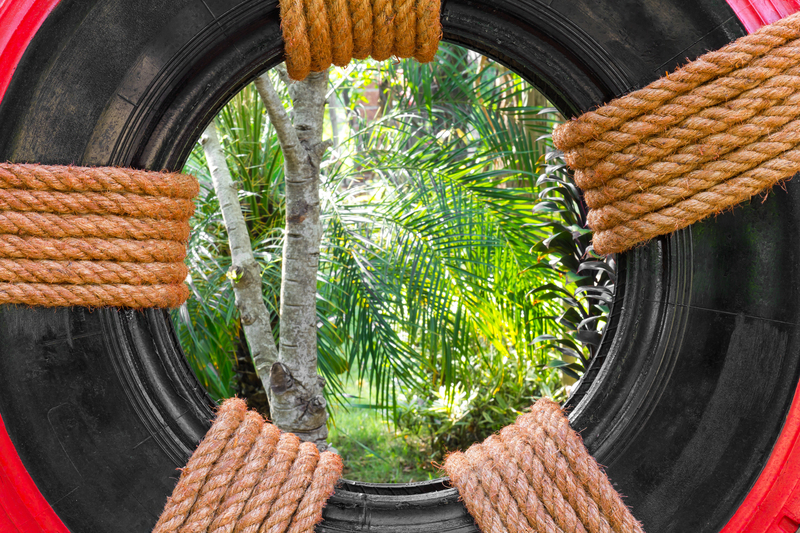Exploring the Impact and Necessity of Builders Skips
When it comes to waste management solutions in the construction industry, few resources are as indispensable as builders skips. From small-scale home renovations to large commercial projects, the presence of a reliable skip hire service ensures a safer, cleaner, and more efficient construction environment. In this comprehensive article, we will delve into the profound impact and necessity of builders skips, exploring their various types, applications, and advantages, while also considering the environmental implications and future trends in the industry.

What are Builders Skips?
Builders skips, also referred to as construction skips or rubble skips, are large, open-topped waste containers designed for use on building sites. These skips vary in size, from mini skips measuring 2-3 cubic yards to large skips over 14 cubic yards or more. Their robust construction allows them to hold a wide array of materials, including bricks, rubble, concrete, wood, metals, and various types of construction and demolition waste.
Distinctive Features of Builders Skips
- High Capacity - Specifically built to accommodate substantial volumes of waste generated during building and refurbishment projects.
- Durable Construction - Made with heavy-duty steel to manage tough items and resist damage during loading and transport.
- Ease of Loading - Open tops and low sides simplify waste disposal, often used with mechanical loaders on larger sites.
- Safety Features - Many come with reflective markings, drop-down doors, and provisions for securing waste to ensure safety on-site and in transit.
The Necessity of Builders Skips in Construction and Renovation
Builders skip hire is not a mere convenience--it is a necessary solution that underpins effective waste management strategies across all scales of construction. Here's why:
Maintaining a Safe, Clean Worksite
- Minimizing Hazards: Construction generates debris, offcuts, and hazardous materials. Uncontained waste can lead to slips, trips, and other accidents. Skips localize rubbish, reducing these risks dramatically.
- Compliance with Regulations: UK law and similar regulations worldwide often require responsible waste segregation and disposal. Skip hire services ensure builders comply, avoiding legal complications and penalties.
- Organizational Efficiency: By providing designated zones for material disposal, skips help keep worksites organized, preventing workflow disruption and loss of valuable materials.
Boosting Project Productivity and Timeline
Fast, orderly waste removal is critical for maintaining momentum on-site. With a well-placed builders skip, workers spend less time managing waste and more time focused on the build, resulting in faster progress and streamlined project timelines.
Environmental Responsibility
- Sorting and Recycling: Modern skip hire companies actively sort skip contents, recycling concrete, metals, wood, and plastics, which reduces landfill and supports sustainability targets.
- Reducing Carbon Footprint: Efficient waste collection and fewer journeys to waste facilities lower fuel consumption and emissions associated with construction waste.
- Promoting Responsible Disposal Practices: Professional builders skip hire services adhere to regulations regarding hazardous materials, asbestos, and non-recyclable waste, thus protecting community health and local ecosystems.
Types and Sizes of Builders Skips
The right skip size is pivotal for cost-efficient, effective debris disposal. Here is a brief overview of common skip types and their construction-specific uses:
- Mini Builders Skips (2 - 3 yards): Ideal for small domestic projects, garden clearances, or minor interior renovations.
- Midi Builders Skips (4 - 6 yards): Suits kitchen and bathroom refits, moderate landscaping, and smaller demolition works.
- Standard Builders Skip (8 yards): The classic choice for most building sites; holds bricks, soil, mixed waste, and more.
- Large Builders Skip (12 - 16 yards): Designed for significant commercial works, office clearances, and substantial refurbishment jobs.
- Roll-On Roll-Off Skips (20 - 40 yards): Used on major construction or demolition projects, perfect for bulk waste disposal.
Professional skip suppliers typically provide guidance, helping customers choose the appropriate size based on project nature, waste type, and site constraints.
How Builders Skips Transform Building Site Logistics
The integration of builders skips into project planning brings key logistical benefits:
- Centralized Waste Point: Having a dedicated, easily accessible place for all debris keeps the worksite organized and minimizes the risk of waste piling up in the wrong places.
- Efficient Material Handling: Many skips are sited close to the renovation or construction zone, reducing the distance workers must ferry waste, thus saving time and labor.
- Regular Collections: Skip hire contracts can include scheduled or on-demand pickups--ensuring that waste is removed as it accumulates.
- Segregation for Recycling: Some projects require multiple skips for different waste streams. This not only speeds up recycling but also ensures compliance with local waste management legislation.
Case Study: Builders Skips on a Residential Build
On a typical new home construction project, the use of appropriately sized builders skips at different stages prevents material build-up. For foundation digging, an 8-yard skip handles soil and hardcore. As construction progresses, brick, timber, and packaging waste are disposed of in a midi or standard skip. Specialized skips also handle plasterboard or hazardous waste according to compliance requirements. As a result, the site remains clean, workflow is uninterrupted, and final landscaping is far easier.
Environmental Impact and Sustainability of Builders Skips
A major benefit of hiring builders skips is the positive contribution to environmental sustainability. Here's how skip hire promotes eco-friendly outcomes:
- Streamlined Sorting: Skip companies increasingly offer off-site sorting facilities. Mixed waste from building sites is efficiently separated, maximizing recycling rates for concrete, metals, brick, and wood.
- Reduced Landfill Use: By diverting a large portion of construction waste from landfill, skips help decrease land degradation, methane emissions, and groundwater contamination.
- Lowered Carbon Output: Efficient skip logistics (larger loads, route optimization) cut down the number of vehicle journeys required for waste disposal, further reducing environmental impact.
- Compliance and Reporting: Builders skip services can provide detailed waste transfer notes and recycling reports. These documents are crucial for sustainability accreditation, planning applications, and meeting legal obligations.
Supporting the Circular Economy
Recycling materials from skips supports the circular economy. For example, crushed concrete and brick from skips can be reused in sub-bases or aggregate. Timber waste may be processed into chipboard, while metals are smelted and reintegrated into supply chains. This closed-loop approach conserves natural resources and promotes sustainable building practices.
Legal Regulations and Compliance: Why Proper Skip Use Matters
In the UK and other developed nations, waste regulations are stringent, especially regarding builders skips. Key considerations include:
- Permits for Skips on Highways: Placing a skip on a public road often requires a permit from the local authority. Responsible skip hire services will obtain and display the necessary documentation.
- Waste Types and Restrictions: Not all wastes can be disposed of in a builders skip (e.g., asbestos, chemicals, electrical goods). Clear guidelines help avoid fines, delays, and environmental harm.
- Transfer Notes and Documentation: Legally compliant operators provide waste transfer notes, ensuring that all builders waste is tracked from site to treatment/recycling center.
- Working with Licensed Providers: Engaging a registered, insured skip hire business safeguards your site from improper disposal practices and legal issues.
Benefits of Builders Skips Beyond Construction Sites
While essential on commercial and domestic building schemes, builders skips have several additional practical uses:
- Garden and Landscape Clearances - Disposing of soil, plants, and general garden waste during major outdoor projects.
- Community Clean-Ups - Supporting local councils, schools, or neighborhood groups clearing fly-tipped material or organizing large-scale tidy-up events.
- Shop and Office Refurbs - Removing old fixtures, fitting, packaging, and flooring during modernization projects.
- Moving House - Quickly disposing of unwanted bulky items and reducing the stress of relocation.
Flexible Hiring and Service Models
Skip hire companies now offer tailored options, including wait-and-load skips (for sites lacking space), multiple skip swaps, and even same-day delivery across busy urban areas. This flexibility accommodates the diverse needs of homeowners, businesses, and construction professionals alike.
Choosing the Right Builders Skip for Your Project
Selecting the best builder skip is a matter of volume, waste type, location, and project duration. Here are some top tips for making the right choice:
- Estimate Waste Volume Accurately: Try to assess how much waste your project will generate. Overestimating leads to unnecessary expense; underestimating risks multiple orders and project delays.
- Separate Waste if Needed: If your site will generate significant timber, metal, plasterboard, or other single-material streams, consider dedicated skips for ease of recycling.
- Check Access and Placement: Ensure there's clear access for skip lorries and safe placement--avoid blocking entrances and emergency routes.
- Know Permit Requirements: If space is limited and the skip must be placed on public highway, budget for permit costs and application time.
- Hire From Trusted Suppliers: Look for reviews, waste carriage registration, and environmental credentials when choosing a skip provider.

Future Trends: Builders Skips and Waste Management Innovation
The future of builders skips lies in embracing new technologies and sustainability practices:
- Smart Skips: Sensors and IoT integration mean skips can soon alert providers when they're full, optimizing collection schedules and reducing site disruption.
- Improved Sorting & Recycling Facilities: Large-scale investments in automated sorting mean more skip waste will be diverted from landfill, furthering environmental goals.
- Lightweight and Modular Skips: New skip designs utilize tougher, lighter materials, reducing vehicle impact on roads and making skips easier to move on restricted-access sites.
- On-Site Waste Processing Solutions: For larger developments, mobile waste processing plants work alongside skips, crushing or compacting material before collection.
Conclusion: Why Builders Skips Remain Essential
Builders skips are far more than a functional container--they are a cornerstone of sustainable, safe, and efficient building practices in the modern era. By providing a reliable solution for waste collection, segregation, transport, and recycling, skips underpin site safety, environmental responsibility, and project efficiency at every stage. As regulations tighten and the industry pursues greater sustainability, innovations in skip hire and waste management processes will have a profound and lasting impact.
If you're planning a construction or renovation project, investing in the right builders skip ensures your site remains clean, compliant, and environmentally conscious. Choose wisely, and you'll contribute not only to the success of your build, but to a better, greener future for all.